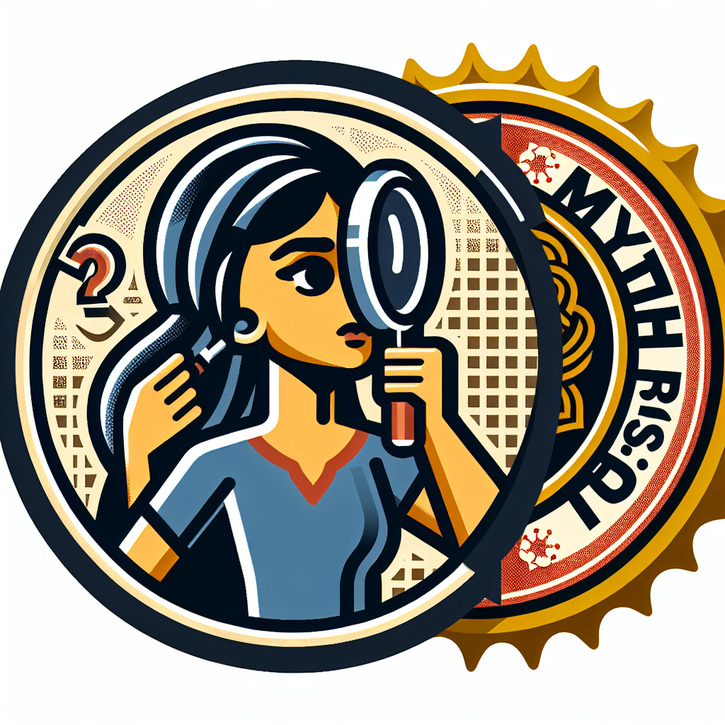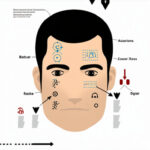Common Myths About DRY SKIN HAIR LOSS Debunked

Debunking the Top Myths About Dry Skin Hair Loss
Getting Real About Dry Skin Hair Loss
In our busy, ever-changing world, staying on top of our health can sometimes feel overwhelming. Dry skin hair loss is one condition that often gets misunderstood – many people think it’s just about how you look rather than a hint of something deeper going on inside. In this post, we’re diving into what dry skin hair loss really is, why so many myths keep floating around, and how these misconceptions might steer you in the wrong direction when choosing treatments. Backed by both cutting-edge research and real-world clinical insights, we’re here to shed light on the facts.
If you’re dealing with dry skin hair loss, you’ve probably been bombarded with conflicting advice from every corner. Our goal here is to clear up the confusion by answering common concerns with clear, evidence-based responses. We’ll explore the tight connection between your skin’s health and your hair’s strength, proving that what might seem like a minor cosmetic problem often has deeper roots. Whether you’re experiencing it yourself or just curious about the topic, understanding the real story behind dry skin hair loss can help you make smarter choices for treatment and everyday care.
So, What Exactly Is Dry Skin Hair Loss?
Dry skin hair loss isn’t just one single issue – it’s a multifaceted condition that can impact both your scalp and hair follicles. This often leads to hair that feels brittle and looks thinner, along with a dry, flaky scalp. And, contrary to popular belief, it isn’t merely a beauty concern. At its core, it’s about a breakdown in the natural barriers that keep your skin and hair healthy. Environmental factors, lifestyle habits, and even certain skin conditions can come together to cause this problem. By looking at dry skin hair loss through both a dermatological and overall wellness lens, patients and caregivers can tackle it in a more informed, proactive way.
Why Do So Many Myths Surround Dry Skin Hair Loss?
Myths about dry skin hair loss have really taken root over time, passed along by word of mouth, online chatter, and even old-fashioned books. Many people assume that if the problem seems skin-deep, then fix-it solutions must be simple. But these oversimplifications only add to the confusion, leaving sufferers wondering whose advice to trust. Part of the problem is the easy spread of misinformation and a generally spotty public understanding of the condition. This muddled picture makes it harder to get a correct diagnosis and effective treatment.
How Misinfo Can Mess with Your Treatment
Misinformation around this condition can really derail effective treatment. When you rely on myths, you might end up using remedies that only scratch the surface instead of tackling the underlying issues. This misstep can waste your time, money, and sometimes even make things worse. On top of that, these myths can dissuade people from seeking expert help, delaying proper care. In today’s digital age where advice is everywhere – not all of it right – it’s more important than ever to lean on trustworthy, evidence-based information and professional guidance when making treatment decisions.
Sorting Out the Myths Around Dry Skin Hair Loss
Let’s take a closer look at some of the most common misconceptions about dry skin hair loss. Up next, we’re challenging the idea that this is strictly a cosmetic issue or something that only affects older folks. By addressing these false notions head-on, our aim is to give you clear, accurate information. It turns out that, far from being merely an aesthetic problem, there’s a complex mix of biological, environmental, and nutritional factors at play.
Why The Ancient Samurai Warriors Never Lost Their Hair…

guaranteed to work for any men or women out there...
Watch nowOne big myth is that dry skin hair loss is just an annoying look-and-feel issue without any serious health implications. This oversimplification not only minimizes what those who suffer from it go through but can also delay important treatments. And the idea that only older people are affected overlooks the reality that anyone can experience it – thanks in part to the stresses of modern life and environmental factors. By laying out the facts and separating true information from fiction, we hope to encourage a more rounded understanding and better health choices.
Myth: It’s Just About Looks
One of the most common myths is that dry skin hair loss is all about appearance – that it’s purely a cosmetic issue. In truth, it often signals an imbalance or a break in the natural moisture barrier of your skin and scalp. It’s not just about looking good; it’s about maintaining your skin’s overall health. When your scalp doesn’t get enough hydration and nourishment, it can spark inflammation, worsen conditions like eczema, and speed up hair thinning. Recognizing that these changes are your body’s response to stress and environmental pressure is key, and it highlights why a well-rounded treatment plan is so important.
Myth: Only Older Folks Are Affected
Another prevailing assumption is that only the elderly suffer from dry skin hair loss, which leads younger people to ignore early signs. In reality, age is just one piece of the puzzle. Younger individuals – especially those battling hectic lifestyles, environmental stress, and poor dietary habits – are increasingly experiencing these symptoms. This myth can sadly lead to delayed treatment just when early intervention could make a big difference. Understanding that risk factors for dry skin hair loss cut across ages is crucial for prevention and beginning effective care.
Myth: It Can’t Be Prevented
A really damaging myth out there is that once you have dry skin hair loss, there’s nothing you can do to stop it. Many believe that the condition is a one-way street, leading them to give up on trying to prevent further damage. But research suggests otherwise – proactive steps like lifestyle tweaks, smart skincare routines, and early intervention can really help prevent or at least slow the progression of the problem. Simple actions like keeping yourself hydrated, eating a balanced diet, and avoiding harsh treatments can empower you to protect your hair and scalp before things get worse.
Myth #1 – What’s Really Causing Dry Skin Hair Loss?
Let’s dig a little deeper into the root causes of dry skin hair loss and bust the myth that genetics are the sole culprit. While you can’t blame your family tree entirely, simply pinning the condition on your genes does a disservice to the true story. In reality, environmental stress, lifestyle shifts, and even what you eat can all play significant roles. Looking at it from this broader perspective opens up more options for prevention and personalized treatment strategies. This more nuanced view is key to managing – and sometimes even reversing – hair loss.
The “it’s all in the genes” explanation misses the mark. Think about it – pollutants in the air, the constant use of chemical-laden hair products, and even stress-induced hormonal imbalances can worsen dry skin and, in turn, trigger hair loss. Lifestyle choices and our daily environment often team up with genetic factors to compound the problem over time. Stepping away from this one-dimensional view means embracing a multi-layered approach that considers every angle.
Watch Your Hair Come Back FASTER Than You EVER Dreamed Possible

WITHOUT Expensive Medications, Lasers, or Painful Surgeries!
Learn moreMisconception: It’s Just in Your DNA
You’ve probably heard that dry skin hair loss is all about genetics, and while inherited traits do affect your hair’s texture and strength, they aren’t pulling all the strings on their own. Environmental factors like UV exposure, humidity, or even harsh chemicals also play a part in the mix. Overlooking these elements leads to treatment plans that miss the mark. Once you acknowledge the many forces at work, you can start developing a care plan that really addresses everything – from keeping your skin hydrated to adjusting your diet for the better.
Fact: Lifestyle and Environment Are Key Players
On the flip side, there’s solid evidence that what you do every day really affects the onset of dry skin hair loss. Think about it: exposure to extreme weather, frequent use of heat styling tools, and even certain food choices can all harm your scalp’s defenses. Many dermatologists now recommend a holistic approach – one that minimizes environmental stressors and champions a balanced, healthy lifestyle. Whether it’s giving your scalp a gentle cleanse, moisturizing regularly, or protecting it from too much sun, these daily habits can help curb the progression of the condition. Essentially, while genetics might set the stage, your daily choices help decide the outcome.
Myth #2 – It’s a Permanent Deal
A big misconception floating around is that once dry skin hair loss kicks in, it’s there for good. This myth has led many to think that trying to treat it is a lost cause. The truth, however, is much more promising. With advances in dermatology and better insights into how hair follicles work, we now know that early and targeted interventions can either reverse the condition or at least keep it in check. Recognizing and responding to early signs with proper care not only brings hope but also encourages you to get professional advice sooner rather than later. Shifting away from the idea of permanence is a vital step toward crafting a personalized and effective treatment plan.
The belief in an irreversible outcome is often fueled by old stories and outdated info. Nowadays, modern research shows that treatments exist that can boost hair regrowth and improve scalp health. Whether it’s specialized medications, topical applications, or even lifestyle tweaks, the key is early action and consistent care. Dispelling the myth of permanence can make a world of difference, encouraging you to actively work with healthcare experts who use the latest evidence-based strategies.
Misconception: It’s a One-Way Street
The idea that dry skin hair loss is permanently etched in stone can stop people from even trying to treat it. This misconception not only robs sufferers of hope but also leads to inaction when early treatment could be most effective. Many mistake temporary issues like natural shedding or short-term dryness for irreversible damage. Busting this myth is all about showing that with timely medical advice and proven treatments, you can actually see improvements in both hair density and scalp hydration over time. Realizing that reversal is possible with the right care can truly boost your quality of life.
Fact: Smart Treatment and Prevention Can Turn Things Around
The latest studies and clinical experiences are clear – dry skin hair loss can be managed, and in many cases, even reversed when you use the right approach. Simple daily practices, like staying well-hydrated, eating a balanced diet, and using dermatologist-approved treatments, make a huge difference. Treatments focused on restoring your skin’s moisture barrier give your hair follicles a chance to recover from stress-related damage. This all reinforces the idea that proactive management really pays off. With a well-thought-out treatment plan, many people have seen dramatic improvements, proving that early intervention can indeed turn the tide.
Top Trichologist: Do This To Your Scalp To Regrow A Full Head Of Hair

Completely natural and dirt cheap way that makes it possible for you to finally regrow all your hair back.
Learn moreDebunking Diet Myths in Dry Skin Hair Loss
When it comes to healthy skin and hair, your diet plays a starring role, even though some myths try to push aside its importance in maintaining moisture. There’s a misconception that what you eat doesn’t affect dry skin hair loss, but research is showing otherwise. Essential vitamins, minerals, and fatty acids are not just buzzwords – they actively support your skin’s hydration and your hair’s strength. In this section, we’re breaking down the nutritional facts, dispelling the myth that your diet can’t impact your hair’s health. A diet rich in antioxidants and omega-3s doesn’t just boost your overall health – it also works directly against the dryness that can lead to hair loss.
The idea that only external products matter ignores a key piece of the puzzle: nutrition. Research consistently shows that missing key nutrients like vitamin E, vitamin D, and biotin can lead to dry, brittle hair and an irritated scalp. Conversely, embracing a diet full of whole foods, lean proteins, and healthy fats can not only enhance general well-being but also make your hair follicles more resilient. This integrated approach highlights that nutrition isn’t just a side note – it’s central to both preventing and treating dry skin hair loss.
Myth: Your Diet Doesn’t Impact Dry Skin Hair Loss
Some folks believe that their meal choices have little to do with dry skin hair loss, arguing that hair growth is purely down to your genes. This narrow viewpoint simply doesn’t hold water. In reality, both macro and micronutrients are essential for keeping your skin hydrated and your hair follicles nourished. When your body lacks these crucial nutrients, it shows – in the form of dry skin and weakened hair. Recognizing the inseparable connection between your diet and skin health is a big step in debunking this myth.
Fact: The Right Nutrients Can Boost Your Hair and Skin
On the bright side, heaps of scientific research confirm that a nutrient-packed diet really does wonders for your hair and skin. Vitamins like A, C, and E, along with essential fatty acids and minerals such as zinc and selenium, all work hand in hand to strengthen your scalp’s natural moisture barrier. When you keep your diet balanced and nutrient-rich, the likelihood of developing severe dry skin diminishes noticeably. This not only supports overall wellness but also directly contributes to maintaining the health of your hair. Embracing nutrient-dense foods every day can be a game-changer for healthier, more resilient hair.
What the Experts Are Saying About Treating Dry Skin Hair Loss
Leading dermatologists and trichology experts have shared some really practical approaches for managing dry skin hair loss. They all agree on the importance of basing your treatment on evidence and tailoring your care to fit your unique situation. Their advice often covers everything from personalized skincare routines and medicated shampoos to simple dietary tweaks. These professionals stress that early diagnosis and a customized approach are key – there’s no one-size-fits-all treatment here. Thanks to their insights and ongoing research, we’re making great strides in preventing and even reversing this condition.
A common thread among experts is the emphasis on keeping your scalp well-hydrated and maintaining your hair’s natural balance. Dermatologists often point out that consistent moisturization and the use of barrier-repair creams can greatly improve scalp health, helping to fend off further dryness and damage. Their guidance, backed by modern research, is opening up new, innovative ways for those dealing with dry skin hair loss to reclaim their confidence and overall hair health.






